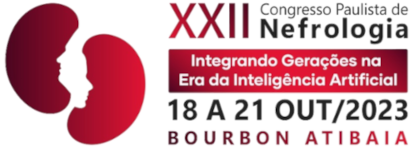Dados do Trabalho
Título
THE USE OF BIOCHEMICAL TESTS RELATED TO KIDNEY DISEASE ASSESSMENT BY YOUNG PHYSICIANS: A CROSS-SECTIONAL STUDY
Introdução
Evidences suggest that unnecessary biochemical tests during hospital stays have a detrimental impact on patient care and healthcare system. It is not known whether tests that assess kidney function are required with a different frequency than other biochemical tests. We hypothesize that unnecessary biochemical testing frequency may be high among resident physicians, especially those related to kidney diseases. Primary endpoint: to evaluate the frequency and usefulness of complementary exams requested by young physicians. Secondary endpoint: young physicians' knowledge about the healthy-financial knowledge and aspects of medical practice related to laboratory testing.
Material e Método
A prospective transversal study including adult patients admitted to the Internal Medicine ward between Aug/21 to Feb/22. During a 1- to 7-day hospital stay, all serum and urinary biochemical tests were registered and analyzed. They were divided according to their relation to kidney disease assessment, classified according usefulness, and within or not reference range. Demographic and clinical data, including comorbidities, cause of hospital stay, frequency of complications associated with blood collections were registered. Young physicians answered a structured questionnaire (Likert scale-based) about health-financial knowledge and aspects of medical practice related to laboratory testing.
Resultados
790 laboratory tests (754, serum; 36, urine) were registered, from 30 patients during 193 days of hospital stay; 418 (53%) tests were considered unnecessary, and 385 (49%) were within the reference range. The frequency of unnecessary tests related to kidney disease was significantly higher than those unrelated (n=284, 58% vs. n=134, 45%, respectively, p<0.05). Serum creatinine and urea were the most kidney disease-related tests ordered, over half of them unnecessary (65% and 53%, respectively). A total of 683 resident physicians were invited to participate; eighty-one (12%) answered the questionnaire. Most (n=70, 86%) declared had not received health-financial education during graduation, ordering laboratory tests dally, and declared that the therapeutic plan involves laboratory tests.
Discussão e Conclusões
The frequency of unnecessary tests ordered by young physicians was high, especially those related to kidney disease assessment. The resident physicians related poor health-financial education. The impact of educational initiatives to avoid unnecessary testing should be tested in future studies.
Palavras Chave
kidney disease; laboratory test; health education; public health.
Área
Ligas acadêmicas
Instituições
Departamento de Medicina Interna (Nefrologia), Faculdade de Ciências Médicas, Unicamp, Campinas, Brasil - São Paulo - Brasil
Autores
ANNA BEATRIZ DE ARAUJO, MARCOS VINICIUS DE SOUSA, MARÍLIA PAIVA MARTINS, CINTHIA ESBRILE MORAES CARBONARA, LYGIA LUSSIM, RODRIGO BUENO DE OLIVEIRA
